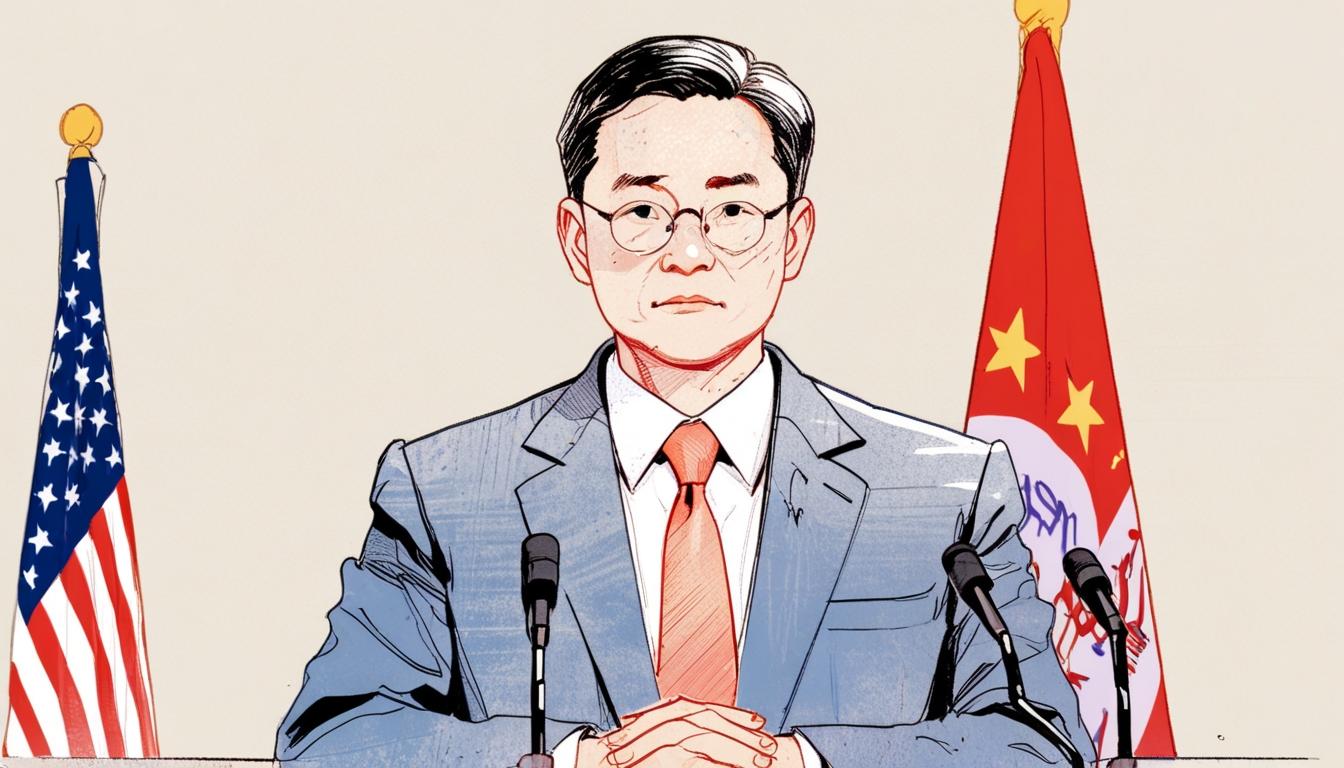Chinese economic officials sought to bolster public confidence in the country’s economy amid ongoing tensions with the United States over trade policies. At a press conference held in Beijing, senior officials outlined their stance on the impact of the US-China trade war and asserted China’s resilience in meeting growth targets despite rising external challenges.
Zhao Chenxin, vice chair of China’s National Development and Reform Commission—the nation’s key economic planning body—addressed concerns relating to the import restrictions stemming from US tariffs, which have surged past 100 per cent on bilateral trade. Zhao highlighted that China could largely compensate for the absence of American agricultural and energy imports, noting, “US agricultural imports were primarily for feed grains, which were highly substitutable.” He also remarked that China’s energy supplies would face limited disruption if oil, natural gas, and coal imports from the US were curtailed.
The trade tensions have manifested in a downturn in business between the two economic superpowers, leading to operational adjustments within Chinese manufacturing sectors, including worker furloughs. Nevertheless, Zhao affirmed Beijing’s “full confidence” in achieving its 5 per cent annual economic growth target despite acknowledging that “external shocks were increasing.”
The effects of trade restrictions are also acutely felt on the US side, particularly among American farmers who had exported approximately $33 billion in agricultural goods to China in 2023. Energy exports from the US to China amounted to roughly $15 billion. While discussions about trade negotiations have gained traction within the Trump administration, China's government has been resistant, criticising claims of active negotiations as unfounded. Beijing has reiterated that US tariff removals should serve as a preliminary condition for any trade discussions.
Alongside discussions of trade tensions, reports indicate that Chinese oil traders have been taking advantage of lowered crude prices caused in part by the trade conflict, stockpiling oil despite concerns about longer-term economic ramifications. Meanwhile, China’s exports of clean technology products—including solar panels and batteries—have surged significantly, especially to emerging markets, well ahead of the onset of tariff disputes.
Other significant global developments noted include the start of Japanese Prime Minister Shigeru Ishiba’s visit to Manila, where he is scheduled to meet Philippine President Ferdinand Marcos Jr., marking an important moment in bilateral relations. In Canada, the first polls have opened in a federal election shadowed by former US President Donald Trump’s critiques of Canadian sovereignty, as Prime Minister Mark Carney faces off against Conservative leader Pierre Poilievre.
In financial news, earnings reports are due from major banking institutions including HSBC, China Construction Bank, and the Industrial & Commercial Bank of China.
Among other noteworthy stories, a substantial $42 billion plan to take Japanese car parts giant Toyota Industries private has stimulated investor enthusiasm in Tokyo, sparking speculation about wider corporate restructuring. In Italy, the board of tyre manufacturer Pirelli voted to remove China’s Sinochem as the controlling shareholder amid governance conflicts intensified by trade tensions. European and Ukrainian officials have expressed concern that President Trump may withdraw from ongoing peace negotiations between Kyiv and Moscow, potentially citing incremental progress as justification. Additionally, a mysterious power outage in Spain and Portugal caused widespread disruptions in transportation and communications, leading Spain to declare a state of emergency. In Saudi Arabia, Neom’s acting chief executive, Aiman al-Mudaifer, has begun a review of the $500 billion futuristic mega-project’s scope and priorities.
The Financial Times also highlighted the Trump administration’s desire for Apple to produce iPhones domestically within the US, a venture complicated by the complex global supply chain of smartphone components that currently centres around China.
Other features in the publication include an op-ed discussing how India’s undermining of the Indus Waters Treaty could impact regional security, analysis of the competitive landscape between Chinese and South Korean battery manufacturers, and data showing that younger US workers seek more in-person workplace interaction compared to baby boomers. An increasing number of US students are reportedly looking to UK universities for study opportunities, a trend linked to political dynamics within America’s educational institutions.
Lastly, a cultural spotlight was cast on culinary traditions with a chef releasing a detailed recipe for Malaysian roti flatbread, a dish that is reportedly challenging to find documented recipes for.
This comprehensive coverage paints a detailed picture of the multifaceted economic, political, and cultural currents shaping global affairs, particularly emphasising the reverberations of US-China trade relations and associated geopolitical developments.
Source: Noah Wire Services
